Shulamit Bat-Dori, 1904-1985CIE+
Born in Warsaw and known as Mita, Bat-Dori immigrated to the Land of Israel in 1923 and brought theater to kibbutzim as an actress, playwright and theater director. Her plays targeted political issues, such as…
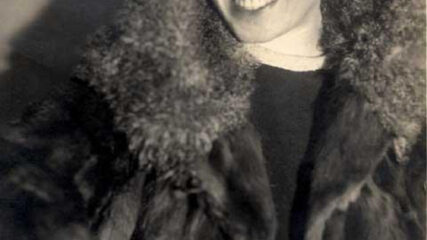
Born in Warsaw and known as Mita, Bat-Dori immigrated to the Land of Israel in 1923 and brought theater to kibbutzim as an actress, playwright and theater director. Her plays targeted political issues, such as…
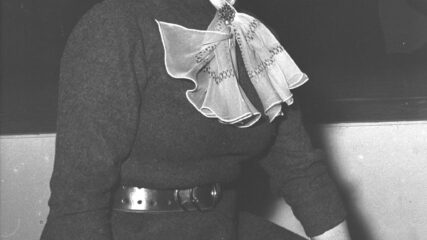
A New York-born opera singer, De Philippe founded the Israel National Opera Company in 1947. She settled in Palestine after World War II and performed with the Palestine Folk Opera in 1945 and for the…

Einstein has been called the most important man in Israeli music. Combining folk and rock, Einstein’s music has been celebrated since his first album in 1960 and still influences pop. He introduced rock to Israel,…

A singer, actress, and advocate for trans and gay rights, Goldstein in 1960 was the first trans Israeli woman to have sanctioned sex reassignment surgery. She co-founded the nonprofit organization Aguda in 1975 to help…
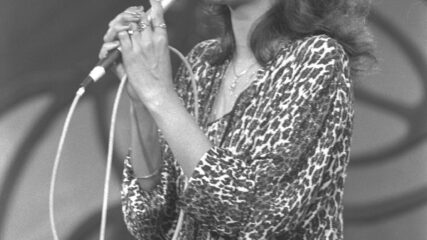
Born into a Yemeni family in Tel Aviv, singer Haza helped popularize Mizrahi culture. Her song “Ga’agu’im” (“Yearning”) launched her career in 1973. She was Israel’s Singer of the Year from 1980 to 1983 and…
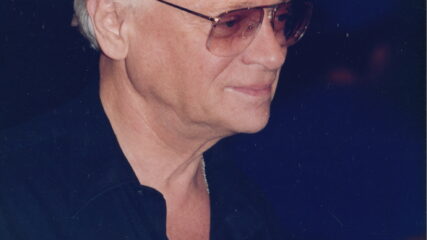
A Holocaust survivor from Hungary, Kishon was a columnist, playwright and film director. His satirical work portrayed social and political issues, often focusing on the day-to-day struggles of regular people or on the state bureaucracy….

One of Israel’s foremost choreographers and a 1973 Israel Prize winner, Levy-Tanai also produced plays and drew inspiration from her Mizrahi roots in her art. A Jerusalem native who was largely raised in orphanages, she…
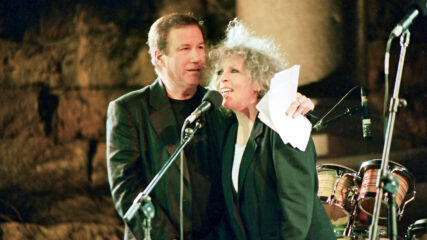
Manor was a singer, songwriter, and TV and radio host. He wrote more than 1,200 songs, including the 1978 Eurovision winner, “A-Ba-Ni-Bi.” Many songs reacted to events such as the June 1967 war and the…
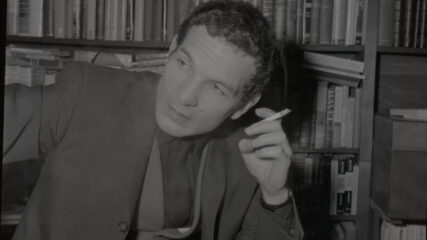
A Palmach veteran of the War of Independence, Ophir was a comedian, actor and singer for whom the Israeli Film Academy Award was named. He starred in almost 30 films, including the Hebrew version of…
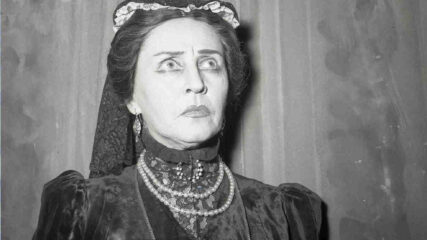
Called “the high priestess of the Hebrew theater” by a fellow actor, Belarus-born Rovina got her start onstage in Moscow with what became Israel’s national theater, Habimah. She was best known for playing Leah in…
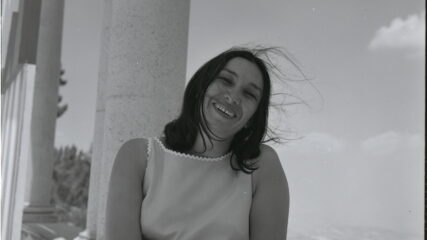
Singer-songwriter Shemer was considered the “first lady of Israeli song.” She wrote “Jerusalem of Gold” (“Yerushalayim Shel Zahav”) for the 1967 Israel Song Festival, and it became the anthem for a united Jerusalem after the…
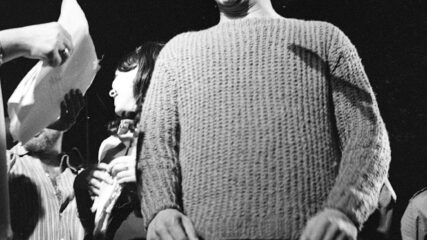
Born in Tel Aviv, Topol was an actor, singer and comedian best known for playing Tevye on the stage and screen in “Fiddler on the Roof.” He received Oscar and Tony nominations and won two…
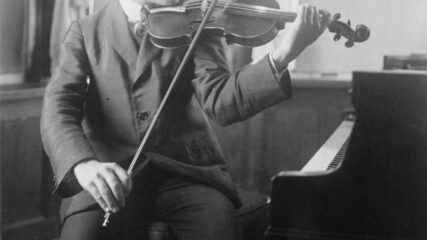
Born in the Russian-controlled Poland, Huberman toured Europe as an acclaimed violinist at age 11. He first visited the Land of Israel in 1929 and decided to bring classical music there. In 1936 he established…

In less than 45 minutes, Israeli educator Susan Nachman Fraiman presents a taste of the variety of voices in Israeli art that have emerged in the past 20 years: female, religious, Mizrahi, Ethiopian and Israeli-Palestinian, all of which are rich subjects in themselves. We examine a few examples of works from each of these sectors and try to understand the rich background from which they come. This video is from a session July 25, 2022, at the 21st annual CIE/ISMI Enrichment Workshop on Modern Israel.

The first version of the Jewish National Library was founded in 1892 in Jerusalem, five years before the First Zionist Congress met; its location evolved to Mount Scopus in Jerusalem during the British Mandate and then after the 1948 war, the library’s books were moved to the Rehavia section of Jerusalem, and then in 1960 to Givat Ram campus of the Hebrew University. As a visiting graduate student from The University of Michigan in the summer of 1971, I walked into the mediocrely lit yet vast reading room of the Library.
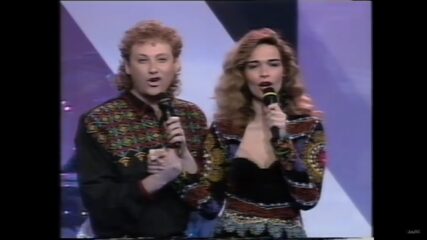
View and listen to the Israeli song performed in the 1991 Eurovision Song Contest, “Kan.” The song placed third and became one of Israel’s popular “Shirei Eretz Yisrael” (songs of the Land of Israel). The Datz Duo wore…

In a July 1, 2020, session of our annual educator workshop, CIE’s Eli Sperling programs a youthful, entertaining video playlist to bring Israel’s religious, cultural and ethnic variety into the classroom.

Upon its inception, Zionism needed more than political and financial solutions to actualize a Jewish home in Palestine. It was necessary for the architects of the Zionist enterprise to cultivate a “new Jew” to lay…

“Hatikvah,” Israel’s national anthem, describes the hope of the Jewish people to be and remain free in the Land of Israel. Its story parallels the Zionist progression from ancient connection to the land to the present. By creatively using the anthem’s contents, one touches on Israeli music, self-determination, immigration, state-building, art and the state’s Basic Laws.

In this new world of social distancing and staying at home, life can slip into a monotonous routine, but there are good ways to liven up your time at home. One is by watching captivating television. But even that can become stale. How many times can you watch Love Is Blind, Tiger King or The Office? Instead, try streaming shows that deal with Israel. The past twenty years have seen an onslaught of exciting, mesmerizing and thrilling productions that offer insights into the nuances of Israel’s history and culture.
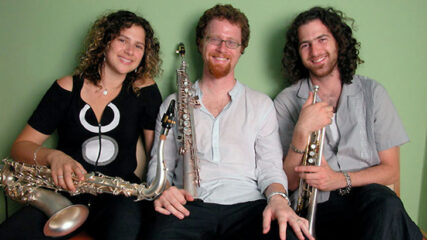
Contemporary Israeli music has long and varied roots. It is rich and dynamically innovative. Instrumental and vocal streams reflect Jewish and Israeli history. Engage your senses in diversely eclectic flavors. Listen wherever you are—links to free online sources; stream Israeli music from many genres and eras.

The public and the judges have decided: Eden Alene, a 19-year-old native of Jerusalem, will represent Israel at the 2020 Eurovision Song Contest in Holland, May 12-16. Alene is the first Israeli of Ethiopian descent to be chosen for this honor. She wowed the audience and all-star panel of judges in the reality show “The Next Star to Eurovision.”

Two sophomore albums from Israeli musicians have received nominations for the upcoming 62nd annual Grammy Awards. The Anat Cohen Tentet, fronted by Israeli jazz clarinetist Anat Cohen, received a Grammy nomination in the Best Large Jazz Ensemble Album category for “Triple Helix.” Southern Avenue, a Memphis-based soul/blues/R&B band cofounded by Israeli guitarist Ori Naftaly, received a Grammy nomination in the Best Contemporary Blues Album category for “Keep On.”

Lag B’omer is celebrated Wednesday evening, May 22-23. The Omer is the Hebrew term for the 49-day period between the Jewish holidays of Passover and Shavuot. This period commemorates the Spring harvest, and at the end, the giving of the Torah to the Jewish people.